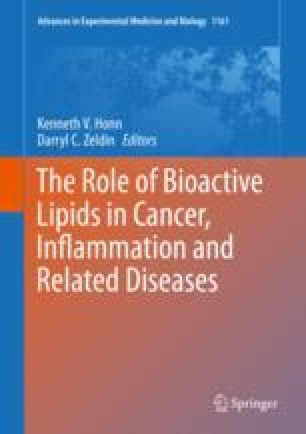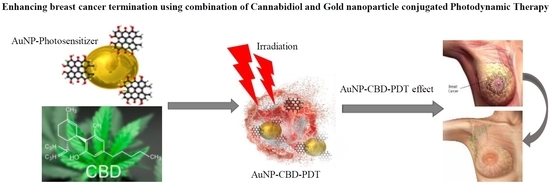 “Muscle pain affects approximately 11-24% of the global population.
“Muscle pain affects approximately 11-24% of the global population.
Several studies have shown that exercise is a non-pharmacological therapy to pain control. It has been suggested that the endocannabinoid system is involved in this antinociceptive effect.
The present study aimed to investigate whether spinal cannabinoid CB2 receptors participate in the exercise-induced antinociception.
The present study suggests that activation of spinal cannabinoid CB2 receptors and reduction of activated microglia are involved in exercise-induced antinociception.”
https://www.ncbi.nlm.nih.gov/pubmed/31473278
https://www.sciencedirect.com/science/article/abs/pii/S0306452219306165?via%3Dihub

 “Little is known about the endocannabinoid (eCB) system in squamous cell carcinoma of the oral tongue (SCCOT). Here we have investigated, at the mRNA level, expression of genes coding for the components of the eCB system in tumour and non-malignant samples from SCCOT patients. Expression of NAPEPLD and PLA2G4E, coding for eCB anabolic enzymes, was higher in the tumour tissue than in non-malignant tissue. Among genes coding for eCB catabolic enzymes, expression of MGLL was lower in tumour tissue while PTGS2 was increased. It is concluded that the eCB system may be dysfunctional in SCCOT.”
“Little is known about the endocannabinoid (eCB) system in squamous cell carcinoma of the oral tongue (SCCOT). Here we have investigated, at the mRNA level, expression of genes coding for the components of the eCB system in tumour and non-malignant samples from SCCOT patients. Expression of NAPEPLD and PLA2G4E, coding for eCB anabolic enzymes, was higher in the tumour tissue than in non-malignant tissue. Among genes coding for eCB catabolic enzymes, expression of MGLL was lower in tumour tissue while PTGS2 was increased. It is concluded that the eCB system may be dysfunctional in SCCOT.” “The endogenous lipid metabolism network is associated with the occurrence and progression of malignancies.
“The endogenous lipid metabolism network is associated with the occurrence and progression of malignancies. “Evidence has been accumulating regarding alterations in components of the endocannabinoid system in patients with psychosis.
“Evidence has been accumulating regarding alterations in components of the endocannabinoid system in patients with psychosis. “A large body of evidence suggests that dietary n-3 polyunsaturated fatty acids (PUFAs), including eicosapentaenoic acid (EPA) and docosahexaenoic acid (DHA), contribute to a reduced inflammatory tone thereby lowering the risk for several chronic and degenerative diseases. Different mechanisms have been proposed to explain these anti-inflammatory effects, including those involving
“A large body of evidence suggests that dietary n-3 polyunsaturated fatty acids (PUFAs), including eicosapentaenoic acid (EPA) and docosahexaenoic acid (DHA), contribute to a reduced inflammatory tone thereby lowering the risk for several chronic and degenerative diseases. Different mechanisms have been proposed to explain these anti-inflammatory effects, including those involving  “In modern lifestyle, stress and Western diets are two major environmental risk factors involved in the etiology of neuropsychiatric disorders. Lifelong interactions between stress, Western diets, and how they can affect brain physiology, remain unknown.
“In modern lifestyle, stress and Western diets are two major environmental risk factors involved in the etiology of neuropsychiatric disorders. Lifelong interactions between stress, Western diets, and how they can affect brain physiology, remain unknown. “Accumulating evidence suggests that diets rich in ω-3 polyunsaturated fatty acids (PUFAs) offer protection against vascular inflammation, neuroinflammation, hypertension, and thrombosis.
“Accumulating evidence suggests that diets rich in ω-3 polyunsaturated fatty acids (PUFAs) offer protection against vascular inflammation, neuroinflammation, hypertension, and thrombosis. “Indisputably, cancer is a global crisis that requires immediate intervention. Despite the use of conventional treatments over the past decades, it is acceptable to admit that these are expensive, invasive, associated with many side effects and, therefore, a reduced quality of life.
“Indisputably, cancer is a global crisis that requires immediate intervention. Despite the use of conventional treatments over the past decades, it is acceptable to admit that these are expensive, invasive, associated with many side effects and, therefore, a reduced quality of life.

 “The European Medicines Agency (EMA) has approved the first cannabis based medicine to treat two rare and severe forms of childhood onset epilepsy, although hurdles remain before the drug becomes available on the NHS.”
“The European Medicines Agency (EMA) has approved the first cannabis based medicine to treat two rare and severe forms of childhood onset epilepsy, although hurdles remain before the drug becomes available on the NHS.”